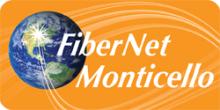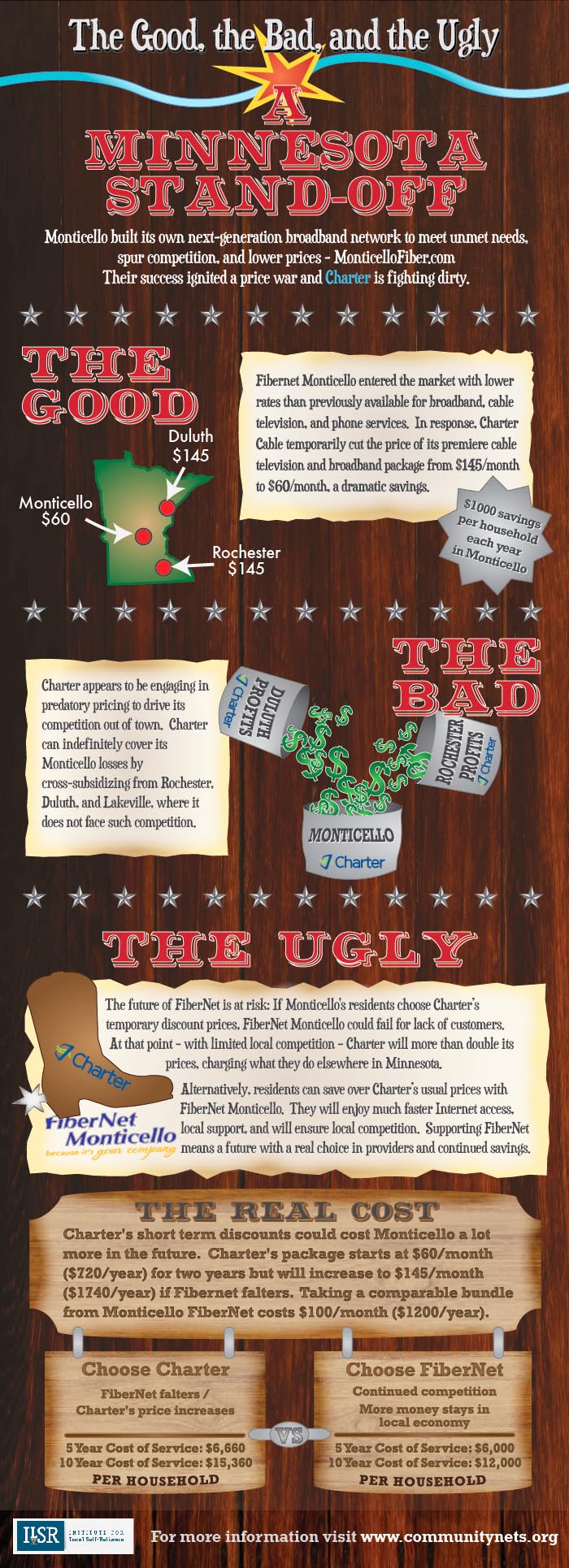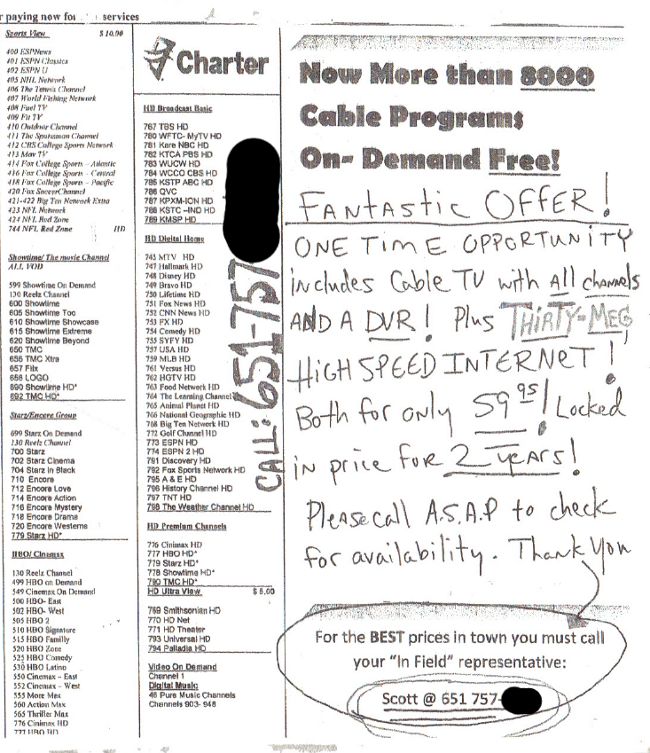Monticello Moves Closer to Settlement with Bondholders
It has been about a year since we checked in on FiberNet Monticello, a city-owned FTTH network about 40 miles northwest of Minneapolis. At that time, the network was generating insufficient revenue to meet debt payments, the private company operating the network (HBC) was stepping down, and Gigabit Squared was kicking the tires.
Since then, Gigabit Squared and Monticello decided against a partnership and the City ceased making payments to bondholders. Previously, the City had covered the difference between revenues and debt payments by borrowing from the City's liquor store fund, a municipal enterprise fund.
Monticello had financed the network with unbacked revenue bonds, meaning investors understood from the start that the full faith and credit of taxpayers would not "make them whole" in the event that the network did not create the revenues necessary to pay back the bond. Because Monticello chose that financing method, it had to pay a higher interest rate - those who buy bonds understand the differences in risk with different types of bonds and rates.
However, the City has been negotiating with bondholders for a settlement to avoid potential lawsuits over the telecom utility and because this is a typically what how these situations are worked out. Bondholders will "take a haircut" in the parlance of finance rather than risk a total loss.
Last week, Monticello City Council approved a $5.75 million proposed settlement in addition to the remaining funds left in the reserve fund, totaling approximately $8 million from an outstanding bond of $26 million. Final resolution may take many more months, but the major arguments seem to be worked out.
This means that Monticello will own and continue to operate FiberNet Monticello. It also means that rather than having a network financed by revenue bonds, the network will have benefited from City funds from the liquor store and will almost certainly be re-financed with other City funds.





 Download a
Download a  This is either predatory pricing or the cable industry is out of control with its rate increases. If that package costs Charter more than $60/month to supply, then it is engaging in predatory pricing to drive competitors out of the market. Consider that Charter may be taking a loss of $20/month ($240/year) from each household that takes this offer.
This is either predatory pricing or the cable industry is out of control with its rate increases. If that package costs Charter more than $60/month to supply, then it is engaging in predatory pricing to drive competitors out of the market. Consider that Charter may be taking a loss of $20/month ($240/year) from each household that takes this offer.

